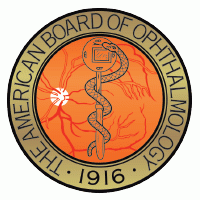Effective January 2023
Certification by the American Board of Ophthalmology (ABO) provides assurance to the public and the medical profession that a physician has successfully completed an evaluation designed to assess the knowledge, experience, and skills required for the delivery of high standards of patient care in ophthalmology.
On February 26, 2014, the ACGME, American Osteopathic Association (AOA), and American Association of Colleges of Osteopathic Medicine (AACOM) announced a Memorandum of Understanding (MOU) outlining a single graduate medical education accreditation system in the United States. The single GME accreditation system allows graduates of eligible allopathic and osteopathic medical schools to complete their residency and/or fellowship education in ACGME-accredited programs and demonstrate achievement of common Milestones and competencies.
The current eligibility criteria for entry into the ABO certification process include the requirement that the candidate completed residency training in either an Accreditation Council for Graduate Medical education (ACGME)-accredited training program in the United States or in a Royal College of Physicians and Surgeons (RCPSC)-accredited training program in Canada. Therefore, individuals who graduate from an ACGME-accredited osteopathic residency who were in the program as of January 1 of the year the program was accredited are eligible to pursue ABO certification.*
Board Eligibility:
Doctors of Osteopathy who graduated from programs already accredited by the ACGME are Board Eligible for seven (7) years and are permitted to pursue American Board of Ophthalmology (ABO) certification. This includes residents who graduated from a program that transitioned to ACGME-accreditation during their training. Residents who graduated before the program was ACGME-accredited are not eligible for ABO certification.
The Board Eligibility Policy requires successful completion of ABO certification requirements (both written and oral examinations) within seven (7) years of residency graduation. During the seven-year Board Eligibility period, candidates may refer to themselves as “Board Eligible” and may:
- Sit for the Written Qualifying Examination (WQE) each time it is offered until successful.
- Sit for the Oral Examination after successful completion of the WQE.
*While the Board recognizes there are doctors of osteopathy who graduate from ACGME or RCPSC-accredited allopathic programs, this policy pertains only to doctors of osteopathy who graduate from ACGME-accredited osteopathic programs.


